Story by TMC Editor / September 13, 2018
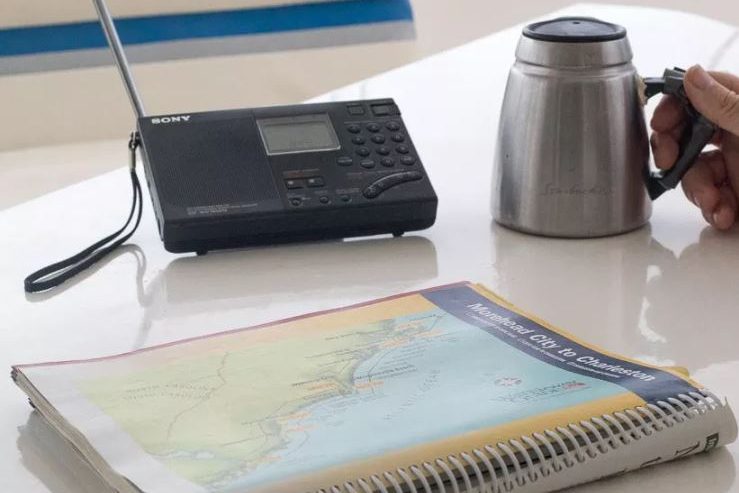
By: Karen Massey
This article was published with permissions by Dean and Karen. Their original blog post can be found here.
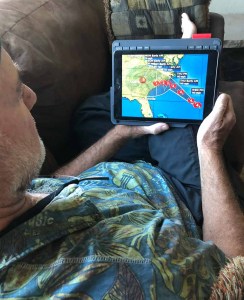
As sailors, we have learned to adjust our schedule according to hurricane season. The season officially runs from June 1 through November 30 with the highest probability of tropical storms in the Atlantic basin generally found between August and October. It’s a fact of life for blue water sailors and we’ve learned that surviving the season, wherever you are, is a matter of planning, preparation and a bit of luck.
Our boat insurance sets the parameters of where we keep the boat during hurricane season. For a price, you can find someone to insure your boat wherever you are. But for the best rates, most insurance companies require that you have a hurricane preparation plan and that your boat be above 30° N latitude (about the Georgia/Florida border) during the official hurricane season.
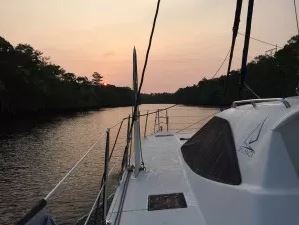
Here are the steps that we follow to prepare our boat (and ourselves) for a potential hurricane:
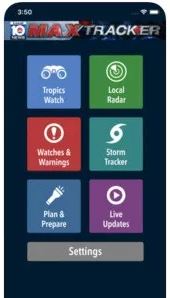
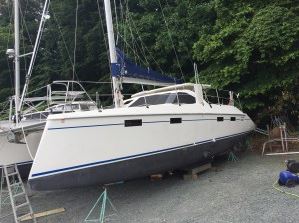
Currently Snowcat is “on the hard” (out of the water on blocks) in a shipyard located in the far northeast corner of Chesapeake Bay, a reasonably safe location. Our plan is to get her launched in late September and cruise the northern Chesapeake Bay through most of October before starting a slow “follow the changing colors” trip south down the coast.
This article was published with permissions by Dean and Karen. Their original blog post can be found here.
Awesome company that worked as my brokerage on purchasing out FP catamaran. A special shoutout to Will Miller for walking us through the process
The process of selling our boat was made very smooth by the Multihull Company and Andrew Hodgdon in particular. Andrew helped us navigate the selling process including moving our boat from Grenada to Florida to execute the sale. We would recommend working with this company, and Andrew Hodgdon in particular, without hesitation.
Very smooth process. Chuck was great and very knowledgeable about the whole process. Im happy to have had TMC to take care of all the things i didnt know about.
Andy
We feel like we got tremendous service from Chuck. He is a total professional, knowledgeable, confident and a natural salesman. While I’m really sad to give up the boat, we are compl we are completely satisfied that Chuck sold it for us.
The Multihull Company-St Augustine, and in particular Andrew Hodgdon handled the sale of my Balance 442 Catamaran. Andrew was professional, transparent and a pleasure to do business with.
Successful relationships cannot exist without it. At The Multihull Company we base every relationship on a firm commitment to earning and retaining our client’s trust.
Advice of any kind is valuable only when grounded in hard-won expertise. It too, must be trustworthy. Trust and expertise define the heart and soul of The Multihull Company. We are a team of skilled professionals who thrive on providing expert, trustworthy advice and service to catamaran and trimaran sailors around the globe.
Read More